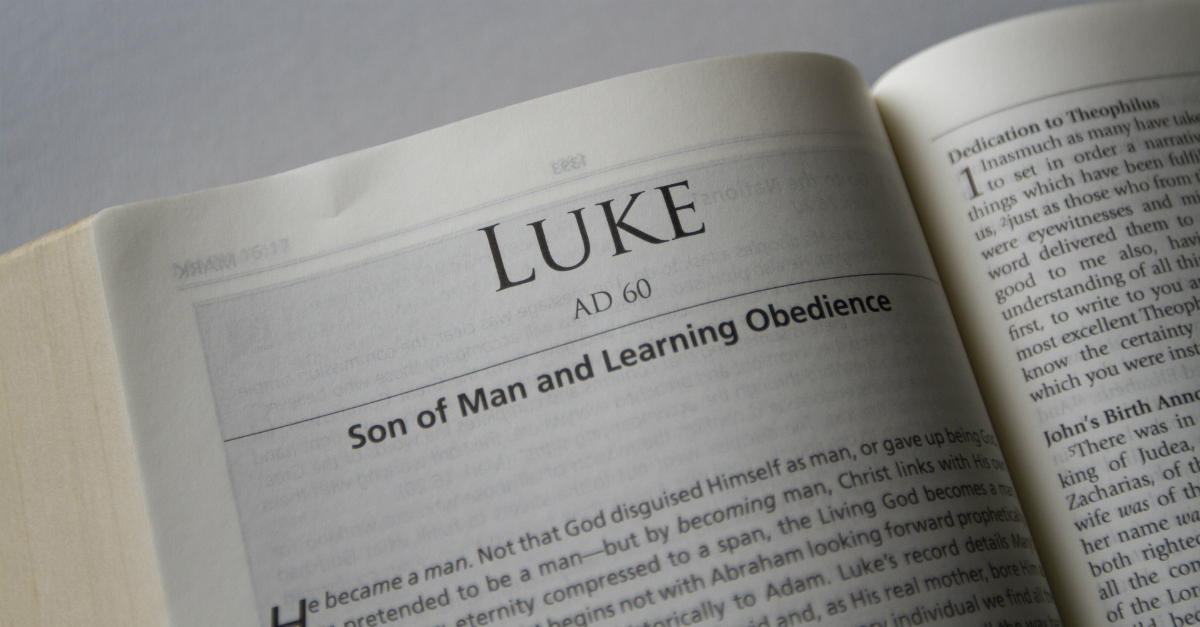Why Is ‘Gnashing of Teeth’ in the Bible?

Perhaps this is due to my generation reacting in anger or disappointment in other ways, but when I first heard about the gnashing of teeth, I didn’t understand the meaning of the phrase found in Luke 13:28 and Matthew 13:42.
I’d first encountered the passage in elementary school, and I pictured people clicking their teeth together when they got thrown into hell, or when Stephen gave his famous speech in Acts 7. The imagery didn’t make sense to me. After all, when someone gets angry now, they often will shake their fist, curse, or do pretty much anything but smack those teeth together.
So what does this phrase mean? Do people really grind their teeth together when they get upset or when they enter a horrible place such as hell? And where else can we find this phrase in Scripture?
We’ll explore these questions and more in today’s article.
What Does the Phrase ‘Gnashing of Teeth’ Mean?
If we take a look at the Greek phrase used in Luke 13:28, the gnashing here denotes "extreme anguish and utter despair of men consigned to eternal punishment in hell.” Some other translations of this phrase might allude to snarling or growling through the teeth.
The same word gets used in Matthew 13:42 (and other passages we’ll cover in a moment).
As explained in this article, the phrase means to convey anguish. For instance, when we stub our toes, we often will clench our teeth to hold back a wail.
Most often, the phrase is exclusively used in reference to sinners experiencing eternal judgment. They will endure a great deal of pain which will cause them to gnash their teeth.
As stated in this commentary, Jesus’ use of comparing hell with darkness would’ve conjured images of the dark streets at night in Jerusalem and the poor outside begging for food. Those turned away would’ve gnashed their teeth due to the colder weather or because they experienced great anguish in being turned away.
Teeth gnashing usually coincides with pain, indignation, or a sense of forlornness.
Where the Bible Talks about Gnashing of Teeth
This phrase appears in a number of instances in Scripture. We’ll tackle a few of them below.
The earliest form of the phrase, in a different language, refers to how beasts will gnash their teeth as they attack their prey (Proverbs 19:12). In the Proverbs passage, a lion plays the role of the beast as the verse discusses the wrath of a king.
Gnashing of teeth occurs most prominently in Matthew. We witness the use of the phrase in Matthew 8:12, Matthew 13:42, Matthew 13:50, Matthew 22:13, Matthew 24:51, and Matthew 25:30. In all of these verses, we witness a servant or lowly person receiving the judgment of a higher official, who tells his servants to throw this person out into the darkness and away from the place of plenty.
If the interpretation of the verse in the above section rings true, and if those more fortunate truly did cast out those with less into the darkness, those who listened to these parables would’ve recognized this imagery immediately.
In all of the verses, with the exception of the Proverbs one, Jesus alludes to what happens when a person who does not have a personal relationship with our Lord encounters their judgment.

What Is the Context of Luke 13:28 and Matthew 13:42?
The Luke 13 passages starts in a really odd spot. Jesus receives word about the tragic death of a group of Galileans, who died at the hands of Pilate. The passage is somewhat enigmatic as to what exactly happened to them, but everyone in the audience had the same thing on their minds, “Because of the severity of their death, did these Galileans commit heinous acts during their lives?”
During Jesus’ time, a certain mistaken understanding equated misfortune that occurred to someone with their sin. So if someone appeared to never have anything bad happen to them, they were thought to have not sinned.
Jesus turns the narrative around and points out an example of Galileans (unclear) who died in an accidental tower collapse.
Both those who died at the hands of men, and the hands of a natural disaster, had an equal need for a personal relationship with their Savior. How they died or what misfortune they experienced did not reflect that relationship.
After this, Jesus heals a crippled woman on the Sabbath. Of course, like usual, the synagogue leader gets indignant that Jesus would do such a thing on a day of rest.
Jesus then tells two parables, all involving ideas of heaven and judgment.
Through these parables, he attempts to explain that everyone had the ideas of heaven and judgment all backward. In the case of the gnashing of teeth, Jesus explains about the narrow door into heaven. In one of the most haunting passages of Scripture, he shows how people who lived upstanding lives and even ate and drank with Jesus, but didn’t have a personal relationship, get cast out.
Jesus claims, “I never knew you.”
Here Jesus attempted to show that good works don’t get one into heaven.
In the Matthew passage, Jesus once again tells a number of parables that discuss the kingdom of God. Most prominently comes in the form of the parable of the weeds. In this parable, a farmer sows good wheat seed, but the enemy rushes into the field at night and plants weeds.
Until the harvest, both plants would look exactly the same. The farmer tells his servants to hold off plucking the weeds until the time of the harvest. During the harvest, they separate the wheat and the weeds, and the weeds receive a fiery judgment.
Jesus later explains the passage to his disciples: that Satan plants imposters in our midst, and in the last days, those who appeared to “walk the walk” (but didn’t truly have a relationship with the Lord) will receive their judgment.

Photo Credit: ©iStock/Getty Images Plus/LaylaBird
3 Reasons to Know about the Phrase ‘Gnashing of Teeth’
We should know this phrase for a number of reasons. First, any time we encounter a phrase in which our modern ears don’t have a familiarity, we should investigate the passage further.
Although the Bible is living and active, many of Jesus’ sermons and the passages contained within were written to a specific group of people from a specific culture. If we learn the context, we can have a greater understanding of how the audience would’ve understood these sermons and parables.
Second, Jesus makes it clear that no one gets into heaven by good works, and that our ideas of the correlation between misfortune and one’s sin are contrary to the Gospel.
One of the saddest things that happen in the Luke passage occurs when people claim to know Jesus and Jesus says he never knew them. We can often try to check the boxes: go to church, do daily devotionals, but if we lack a personal relationship, we’ve missed the entire point of Christianity.
Finally, as illustrated in the parable of the weeds, we need to keep an eye out for imposters.
Not everyone who claims to be a Christian is one. Weeds grow amongst the wheat, and we will not know everyone’s true heart until we reach judgment day.
Conclusion
Gnashing of the teeth most often had ties with agony and desolation.
Whether a poor person gnashed their teeth because of the cold or someone grinds their teeth due to their pain or suffering, any time we encounter this phrase in Scripture, we know it has ties with judgment and hell.
In any case, Jesus wants us to reevaluate our ideas of judgment and hell. The gate to heaven is narrow, and often our perception of good works and misfortune run contrary to what we find in Scripture.
Recommended for You:
7 Reasons 'Good' People Go to Hell
Why Are There So Many Versions of the Afterlife?
What Do We Know about the Final Judgment?
Why Jesus Shares a Parable of Wheat and Tares in Matthew
Photo Credit: ©GettyImages/Jupiterimages
Hope Bolinger is an acquisitions editor at End Game Press, book editor for hire, and the author of almost 30 books. More than 1500 of her works have been featured in various publications. Check out her books at hopebolinger.com for clean books in most genres, great for adults and kids. Check out her editing profile at Reedsy.com to find out about hiring her for your next book project.
This article is part of our larger resource library of popular Bible verse phrases and quotes. We want to provide easy to read articles that answer your questions about the meaning, origin, and history of specific verses within Scripture's context. It is our hope that these will help you better understand the meaning and purpose of God's Word in relation to your life today.
"Be Still and Know that I Am God"
"Pray Without Ceasing"
"Fearfully and Wonderfully Made"
"All Things Work Together for Good"
"Do Not Fear"
Originally published August 14, 2020.





